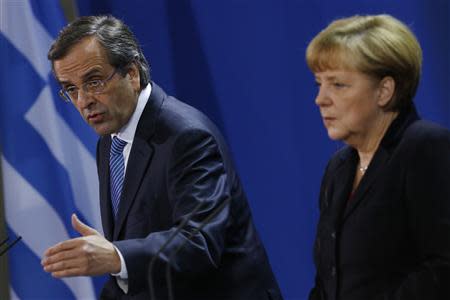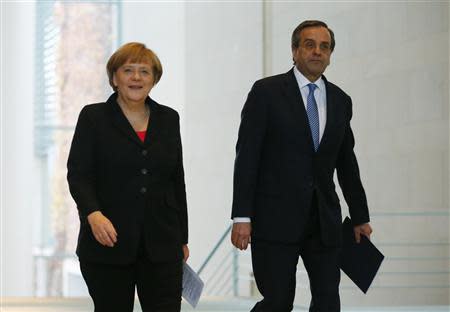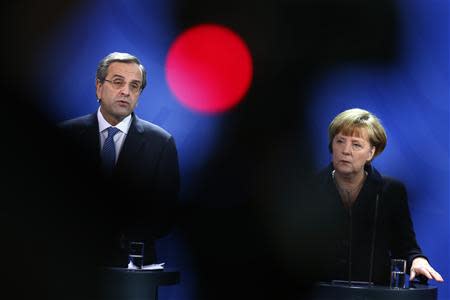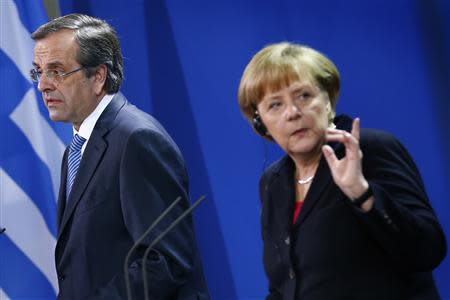Samaras tells Merkel 'no hole' in Greek aid program
BERLIN (Reuters) - Greek Prime Minister Antonis Samaras said on Friday he saw no financing hole in the current aid program for Greece and any decision on further debt relief could only be taken once final data on the budget surplus is available next year. Samaras said at a news conference in Berlin with Chancellor Angela Merkel he was optimistic there would soon be a deal on a new aid tranche with the troika of international creditors. But he also made clear Greece was planning no further cuts in public pay and pensions, beyond what has already been agreed. The Greek prime minister spoke of "light at the end of the tunnel" after Athens confirmed it would emerge from a six-year recession next year and more than doubled its forecast for the budget surplus before interest payments for this year. Posting a primary surplus would open the way for Greece to ask for debt relief from the European Union and International Monetary Fund, whose inspectors are in the middle of their latest review of Greece's performance on its reform targets. "This possibility (of debt relief) will become a reality only after April next year, the final results about the primary surplus will come about. Then a decision will be taken," said Samaras, speaking in English. "The current agreement is on track. We are on track. We don't ask for anything else," he said, standing beside Merkel. The chancellor emphasized the importance of Greece sticking to its commitments, saying that "on this basis the next tranche can be paid out". "And what I am taking away from everything discussed today is that it's not very easy but it's doable," said Merkel. German Finance Minister Wolfgang Schaeuble said the latest successes in Greece's economic data "show that we are on the right path" but warned Athens not to lower its guard. Schaeuble cited Ireland and Spain's planned exit from their aid programs, and progress in Portugal and Greece, as signs the euro zone is resolving its crisis. But he also spoke of the risk that the European Central Bank's loose policy could create a "false incentive not to deploy necessary reforms". (Reporting by Stephen Brown, Noah Barkin, Michelle Martin and Matthias Sobolewski; Editing by Toby Chopra)




